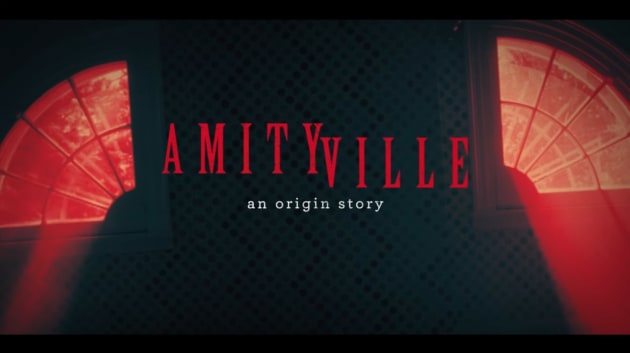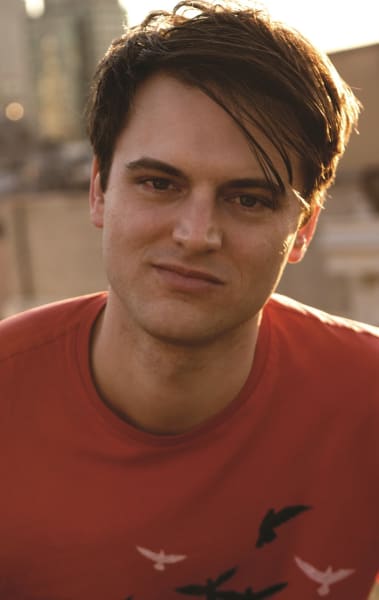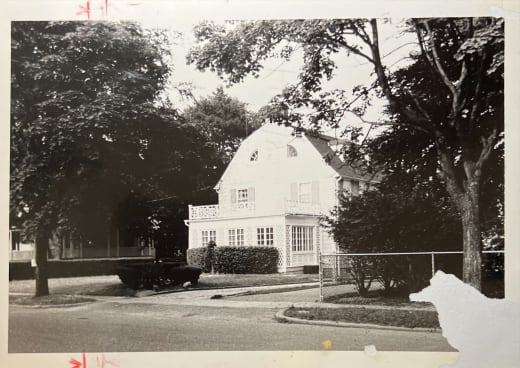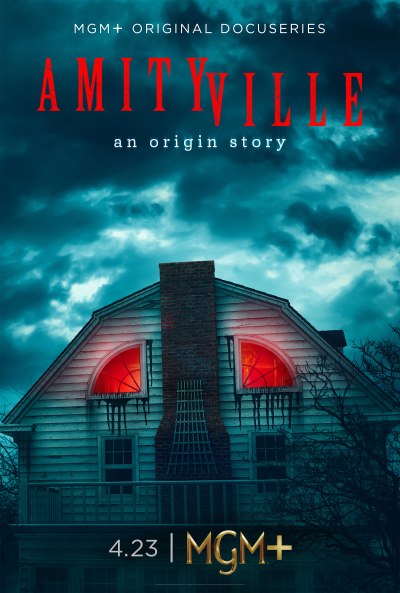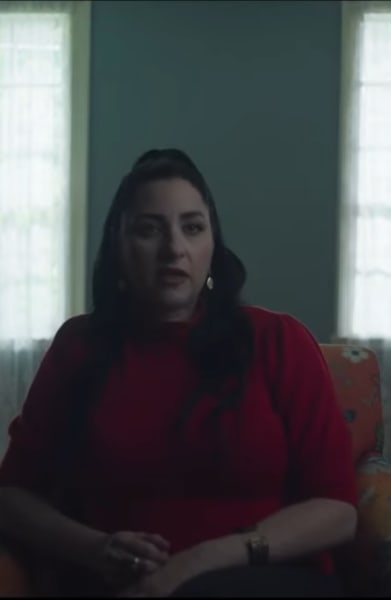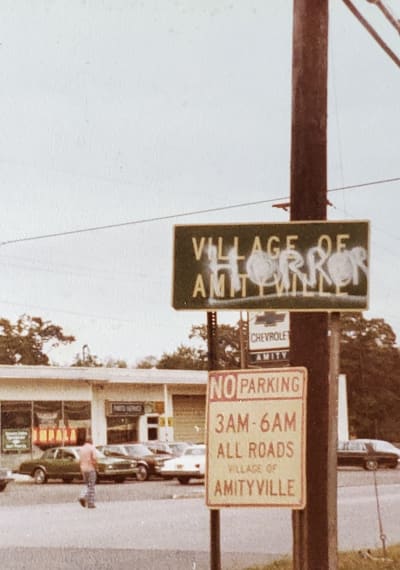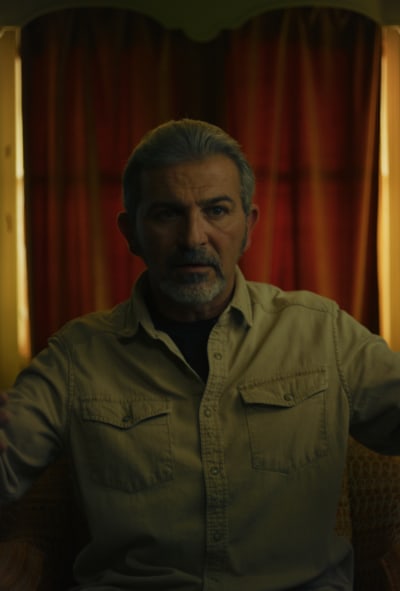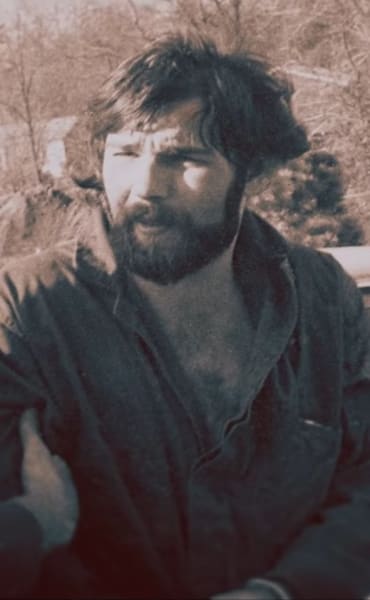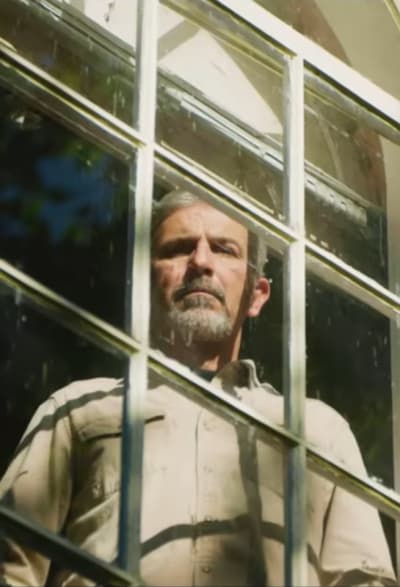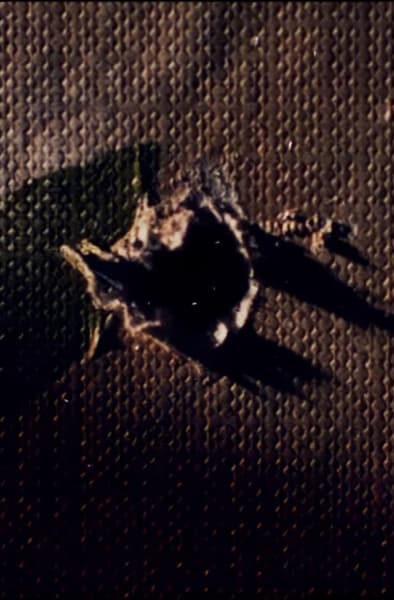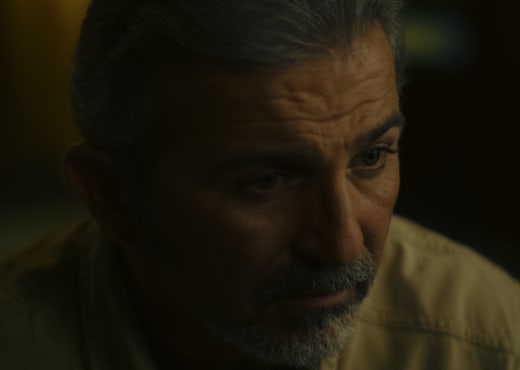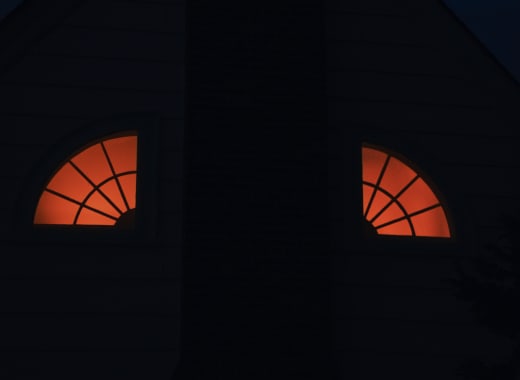Beginning this Sunday on MGM+, director Jack Riccobono will take horror-loving fans on a journey into the origins of The Amityville Horror.
The four-episode docuseries studies how the film captured the zeitgeist of the era as interest in the paranormal increased and how the real-life crime that occurred in the house fed into the lore.
Through never-before-seen interviews with people with first-hand relationships to the murders and the film, Riccobono offers viewers a stunning inside look at how the film impacted us for generations to come.
We had a chance to talk with Riccobono about the series, what inspired him to take the journey, and what surprised him most about what he learned along the way.
Please enjoy the interview below, which has been edited for clarity and content.
What got you interested in documentary filmmaking?
I’m trying to understand other people’s worlds. So I think I was drawn to documentary because it allows you to visit and understand subcultures and take you to places that you haven’t seen or understood before. That’s the transportive quality of documentaries that I love.
What’s the genesis of the show, and what was your thesis for Amityville: An Origin Story?
Well, the origins of the story. This project came about because there had never really been an elevated look at the Amityville Horror — all the layers of it and what gave rise to it.
And I think that’s why the title is Amityville: An Origin Story because we really try to look at all the factors that came together to create the phenomenon of The Amityville Horror, which really continues to this day with over 40 films featuring the word Amityville in them.
I guess what fascinated me was all the different layers to the story. You have, of course, the horror story that was featured in the 1979 film. A lot of people don’t realize that that’s based on a true story of the Lutz family who moved into this house in Amityville and got haunted out 28 days later.
And then, even before the Lutzes, you then have the DeFeo family who, a year before the Lutz moved into the house, suffered this terrible tragedy where six out of seven family members were found shot to death in their beds under mysterious circumstances.
So for me, there’s this layering where you have the horror genre of the ’70s; horror films, which are an incredible space that I love; paranormal investigation, which was exploding in the 1970s, super popular, trying to understand phenomena that are unexplainable; and then you have this heinous true crime that happened in 1974, which was a huge event in and of itself.
I mean, in 1974, mass murder was not normal. And sadly, today, we face a lot of mass shootings. But in 1974, this was front-page news covered by Walter Cronkite; this family found shot to death in their affluent suburban home.
So I really wanted to look at how these two events of the murders of the DeFeo family and the hauntings of the Lutzes came together in this very particular moment in the ’70s to create what we think of as the Amityville Horror.
What do you think is the more interesting part of the story, the murders or what happened to the Lutzes?
I really think it’s the alchemy of the events, and how the stories intertwine with each other because they really overlap in weird and surprising ways. And I think that what ties them together is really the cultural moment.
You have these dark undercurrents in the 1970s with Nixon resigning, the Vietnam War, people distrusting institutions, and this backlash to the free love, freewheeling late ’60s. So the early ’70s were a dark and weird time in America, and I think that that’s part of why these two events were able to combine in this crazy fashion.
One of the big things is you have The Exorcist coming out in 1973, which was this huge phenomenon that popularized the idea of demonic possession and the idea that people would go out and get exorcisms. And it also was an example of a true story that blew up into this massive Hollywood blockbuster.
So in a lot of ways, that laid the groundwork and was like the template for what would happen with The Amityville Horror, although I don’t think the Lutzes could have ever imagined how much attention would come from their story and that it would still be getting told in more and more crazy and ridiculous ways to this day.
I really enjoyed the credit sequence where you had all the strange movie posters. Oh my gosh, I had no idea that it had gotten to that point where anything is Amityville.
Yes. That’s a couple of different factors. I think that this story redefined the haunted house for a generation of people in the ’70s, and it really captured their imagination. Amityville is also a town name, so it can’t really be copyrighted, so literally anyone could make a movie and put the word Amityville in it.
So that is part of why the franchise has so many tentacles and has gone in so many different wild and crazy directions. And obviously, the internet and social media have spun it out in even more crazy and wild directions, and I don’t think it’s ever going to stop.
I always found it interesting, too, that there was the Amityville Horror, and then Amity was the city in Jaws.
Yes.
It seems to me like those two things were conflated at a time when you wouldn’t have expected it, just due to that simple little word, Amity.
Absolutely. Amityville is “the friendly village,” so it has a poor underpinning to it. It’s like the friendly village, except for the darkness that lurks underneath.
From your perspective, what sets Amityville: An Origin Story apart from everything else that has come before it?
I think one of the things we’re most proud of is that we were able to get people to participate and sit down for the first time, people who had experienced these events firsthand and share their stories directly. And first and foremost, Christopher Quaratino, formerly known as Christopher Lutz, is the middle son of the Lutz family.
He was seven years old when the Lutzes got haunted out of the house. And he sat down for his first in-depth interview to really explain in detail what he remembers from being seven years old and living through that period.
And then beyond that, the impact of these events on his family during the rest of his childhood because it was important to us to look at the story from a lot of different angles, including the human toll that the story took because, obviously, it’s been spun out in all these crazy, wild directions and it’s gotten further and further away from the factual underpinnings of both the DeFeo murders and also the Lutz’s story of what really happened.
So Christopher shares what he thinks happened to him, but also who he thinks is responsible for the hauntings that the Lutzes experienced in the house. So that’s, of course, an exciting element of the show. And then we also have close friends and family that have never been interviewed before.
So Carol Soviero, a close friend of George Lutz who toured the house with the Lutzes before they moved in and then was with them in the immediate aftermath and moved out to California with them, shares her stories of that time period for the very first time.
And then, on the DeFeo side, we have a very close friend of Ronnie DeFeo Jr, who was convicted of the murders for killing his whole family. We speak with Tommy Maher, who was, again, a close childhood friend of Ronnie’s, and he speaks about the events leading up to the murders and what he thinks transpired. So that’s one aspect.
We also have footage and photographs that have not been released before and documents that we believe shed light on the origins of the story.
Was there anybody or anything that you wished you had access to that you didn’t?
Ah, that’s a tough one. I mean, there are always elements that you can’t quite track down. One of the things that really fascinated me about the story was the mafia connections that the DeFeo family had. And while we were able to establish those links, a lot of people will not speak on the record about those links even today.
So that element is in the series of mafia connections that the DeFeos had. There’s more to that story, but people aren’t ready to talk yet.
Oh, it’s the mafia. You might be a little reluctant to out anything that goes on with them.
Exactly.
What was the most surprising thing that you discovered along the way?
The most surprising thing. I guess it really, in some ways, goes back to how widespread the fascination was with demonic possession in the mid-’70s, which I think ties right back to The Exorcist.
But people were really obsessed with this idea of possession and of exorcism, and that was an interesting thing to discover all these years later, that it became such a widespread idea and that people would entertain that.
And then use it as entertainment.
Yes. Exactly, exactly.
About things that are surprising, I like that you touch upon George Lutz and how he was speaking with some unsavory individuals and interested in demonic possession himself.
Yes.
How did you discover that and then follow up on that line of thinking?
Well, without giving too much away, I don’t want to have any spoilers, but we were obviously very focused on everything that the Lutzes said in press interviews of the time.
So we did a very deep dive into all of the factual records and then, of course, tried to work backward to see, “Well, what could we verify, or who could we ask to get another perspective on this?”
So with George Lutz, one of the things that has always been a mystery about him is very little has been known about his childhood or about his life prior to when he met Kathy. George is not the father of Christopher or of Kathy’s older children.
Basically, Kathy and George met, they got married, and within about six months, they moved into the Amityville house. So that all happened pretty quickly, and one of the things that was mysterious about this story is George’s past.
So we were able to connect with a close friend of George’s named Joe Vetter, who described some motorcycle trips that they took. And it was through him that we were able to establish that George did have some exposure to the occult in the year prior to moving into the Amityville House.
And I don’t want to say much more than that, but you get this sense that because George, in interviews, explicitly denied ever knowing or having an interest in the occult. And it turns out that he did actually meet and visit the home of a very famous cult figure named Raymond Buckland, who popularized Wicca in the 1970s.
So that was quite an interesting discovery and suggests that perhaps George knew more about the occult than he originally shared in press interviews in the ’70s.
I also really like the quotes at the beginning of each episode and how they set out what the episode is going to talk about. Do you have those things in mind beforehand? Do you know these quotes and think, “I’d like to incorporate these in some way and use these as a guide,” or do you search for quotes after the fact?
We were trying to figure out the show in the early days of the editing process and experimenting, and our supervising editor added that Jean-Paul Sartre quote, “Hell is other people,” to an early cut, and it just provided a framework.
And again, it provided an opportunity for us to comment out of the gate and set up the audience in a certain way and put them in a certain frame of mind for how to approach the story because this is not your typical documentary series.
I think it’s a pretty wild ride that we take you on, where each episode has a very different flavor to it. The first episode is really like a horror docutainment with jump scares, where you’re taken into the mind of the Lutzes and experience what they say happened to them.
In episode two, it’s much more of this hard-boiled true crime investigation of the DeFeo murders and really tries to look at how these unexplained elements of that crime led to paranormal explanations.
And then, in the third episode, you have this crazy combination of the stories of the DeFeo murders and the Lutz hauntings and how that gave rise to the bestselling book and then, ultimately, the 1979 film.
And then the fourth episode has this investigative documentary quality, where we uncover new aspects of George Lutz’s past that have never been revealed before.
So we wanted each episode to have its own kind of feel, and the quotes really ended up supporting that. And funnily enough, they landed and just stuck through the process. We didn’t audition a hundred different quotes or something. Somehow, the early quotes ended up, I think, informing where we took the episode.
And it’s just one of those strange qualities, I guess, that unexplainable alchemy of the post process, that we were able to land on these quotes.
And ultimately, I think there are different ways to read them, but certainly, one way to read them is through the lens of George Lutz, who really is large as a central figure in this whole story. And I think you could apply them all to thinking about him in one way or another.
And finally, what do you hope people take away from this after watching?
Well, I hope that they’ll feel connections to our current moment in it. I think horror is an incredible genre for exploring real anxieties and fears that we face every day.
And I think that this show unravels one of the most famous horror film horror stories of all time and allows you to see it through many different angles, including the factors in the ’70s that led to its existence.
And so I hope that in watching the show, people can reflect on the moment we’re living in now, and maybe that will give them a new perspective on how we’re facing some of the fears and anxieties of our day.
Amityville: An Origin Story premieres on Sunday, April 23, on MGM+ at 10/9c.
Carissa Pavlica is the managing editor and a staff writer and critic for TV Fanatic. She’s a member of the Critic’s Choice Association, enjoys mentoring writers, conversing with cats, and passionately discussing the nuances of television and film with anyone who will listen. Follow her on Twitter and email her here at TV Fanatic.
